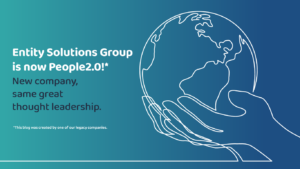Melbourne is a city that’s easy to get comfortable in – topping The Economist’s Global Liveability Ranking for the fifth year running in 2015. A city with sublime living standards, great infrastructure and brimming with culture.
A city that’s thriving, and is fast becoming one of the world’s hotspots for freelancers.
Dr Tui McKeown, Researcher and Senior Lecturer at Monash University, leads the way in freelancer research in Australia. Based in Melbourne, she witnesses at first hand the benefits of this way of working: “It is one of the most dynamic and exciting cities in the world for freelancers. You can walk into any coffee shop and work, and you’ll soon recognise the regulars. It’s the way of work here. There are over 50 coworking spaces in Melbourne. Coworking and coffee shops are a large part of our vibrant culture.”
Setting yourself up
So you arrive in Melbourne and want to freelance. First things first, you need an Australian Business Number (ABN). You can’t work until you have this. It is pretty easy to complete and if you get stuck with anything just call the Australian Business Register and they’ll help you out.
Next you need a Business Activity Statement (BAS) – a fact of life if you want to freelance. A BAS is essentially a declaration of your income and expenses for the period in which you worked, and is often the best way for you to keep on top of your finances.
There is also the Goods and Services Tax (GST), also known as VAT, which you can register for if your business or enterprise has a GST turnover of $75,000 or more.
You’ll notice when setting up that you’re far from alone – according to research by Upwork released in October 2015, there are approximately 4.1 million people undertaking freelance activity in Australia – a figure growing every year. Dr McKeown, who also leads on a landmark research project into the wellbeing of freelancers, has found that “according to my research, self-employment can be mentally and physically much, much better for an individual than traditional employment.”
Where to work/getting around
Notable space, including factories, decommissioned knitting mills, and heritage-listed buildings have been transformed into places for freelancers to work – in fact, 15 spaces in Melbourne occupy more than 1,000 square metres. Popular workhubs include: Team Square, Inspire9 and Launchpad.
According to research by Knight Frank, the amount of space occupied by coworking hubs in Melbourne has increased an incredible 750% in the past three years.
It’s very easy to get around in Melbourne. The road system is excellent and there are plenty of trams, trains and buses. In fact, you can get to most things in the city centre by walking.
Just outside Melbourne is the incredible Great Ocean Road, Phillip Island, Mornington Peninsula, as well as Yarra Valley Wineries, Gippsland and the Snow Country. Not half bad.
Hub Australia
Hub Australia is the country’s largest coworking community, with a simple goal – to create a home for small businesses to grow. They currently run the largest coworking space in Melbourne.
Melbourne was the Hub’s first site, set up six years ago. They have now branched out in Sydney and Adelaide, and will be replacing their Melbourne site with a brand new one set to open in October 2016.
George Knight, the Hub’s Marketing Lead, explains that the business works hard to create an engaging community: “Each coworking space has its own vibe, and community managers will go that extra mile to ensure they create a great experience for you. Our spaces allow freelancers to collaborate on different projects. We have a real diverse community here.”
Hub Australia’s Melbourne branch offers many different membership options. The price varies from $30 per month (about £17) to $500 per month (about £280) – including 24/7 hot-desking (conversion rates accurate on 25th July 2016).
The Hub offers a number of different types of ‘desks’ for its members, with the majority choosing a ‘dedicated desk’, which is permanent office space just for them – one that can be called ‘home’.
Networking and support
There are challenges to freelancing in Australia, similar to the ones in the UK, such as barriers when accessing mortgages or pensions, and fair maternity pay. As Dr McKeown remarks: “Freelancers are an untapped treasure – they love this way of working, but they need more support and a voice in government.”
Support is growing – mostly from the freelancing communities themselves.
Hub Australia offers a series of events every week, from lunches and speed networking, to meditation classes. “It’s important to get that work/life balance,” remarks George.
If you’re looking for a membership body that is similar to IPSE in providing you benefits, resources and protections, then Freelance Australia is a good option. They even launched Australia’s firstNational Freelancers Day in November 2015.
There is also Meet Hub – a project by Freelance Australia – which is a “community of Melbourne’s finest and brightest digital and creative freelance talent”. The group focuses on bringing together freelancers of all skills to meet and network and it’s certainly worth checking out their website.
Melbourne freelancers have the added comfort blanket of the Small Business Commissioner to help mediate freelancer and client disagreements – primarily around late payment – and is a position that inspired IPSE to successfully campaign for a UK version.
Summing up
Melbourne has always been a very open city. It’s incredibly culturally diverse, so it’s no surprise freelancing is booming there.
Dr McKeown argues this is what makes it one of the best places in the world to be a freelancer: “When you have control over your work it brings absolute satisfaction. It may be an illusion, but you really can have amazing adventures straight from the movies! Do you want to go for a ski? Do you want to go for a swim at the beach? Australia is truly an amazing country that really does open up that kind of lifestyle.”
This article was written by IPSE Press & Policy Adviser, Nick Walton, and originally appeared in IPSE Magazine issue 57.
IPSE, the Association of Independent Professionals and the Self Employed, is the UK’s largest representative body for the self-employed community, including freelancers, contractors, consultants and independent professionals. We exist to support and enable our members, and the wider population of self-employed, through a range of support services, as well as using our active voice in Government and industry to instill positive change for this sector.

Infographic: Independent Contractor or Employee?
Discover basic differences between contractors and employees with People2.0’s infographic overview.


